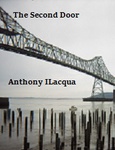In those analog days I knew a great
many people. At any given time I probably knew about 40 to 50 people.
I had classmates, coworkers, and neighborhood friends. I still have
about the same amount of people now. This group of people is fluid,
they change, people come and people go. This 40 to 50 number of
people is a very accurate assessment. This is strange only because
I'm around this many people and I'm intimate with this number of
people, so how is it possible that I have around 800 friends on
Facebook currently?
When I was in my 20s and living in
Denver's Capitol Hill the 40 to 50 people I knew were all doing
something. We were all around the same age too. None of us had much,
no mortgages, few had cars and no one had any kids. But there we
were. I knew carpenters, musicians and people who worked serving
breakfast so their afternoons could be spend making art.
Making art is not easy. It's not
convenient. Oftentimes making art isn't even very much fun. When I
think about sitting at my desk and writing, yes, I want to do it, but
riding my bike or drinking gin sounds like a lot more fun. In fact if
I could spend my days riding my bike and drinking gin, I just don't
think I could ever get tired of it. I would, however, feel like I'm
not doing the thing I should be doing, and that's writing.
The artist community that I knew in my
20s is mostly scattered now. Most of us have jobs, careers even, that
do not reflect our artistic endeavors. Many of us have bills and
debts and all of us seem to have children. The part of life I'm in
now just cannot revolve solely around making art. Although, I think
it should.
Yet, I feel like we talk about it. We
talk about art, or writing, or music. We talk about the things we are
doing, what we want to do. And I'm grateful that we do not talk about
the things we did do.
My community is more varied now than
ever. I don't hang around with artist solely. I do not always have
someone to talk to about reading and writing. And the people I know
these days find it strange that I do not know one spectator sport
from another and I do not watch tv.
Your community, I think, defines who
you are. I have friends that when we're together we party into the
small hours and drink like the dawn will never come. I love these
people and I love these times, but I'm grateful they aren't common
anymore. If you want to be an artist, and no matter where you are in
life, a young student, or a middle aged parent or an older empty
nester, you must surround yourself with other artists. There are
artists all around us.
 Short Synopsis :
Short Synopsis :


